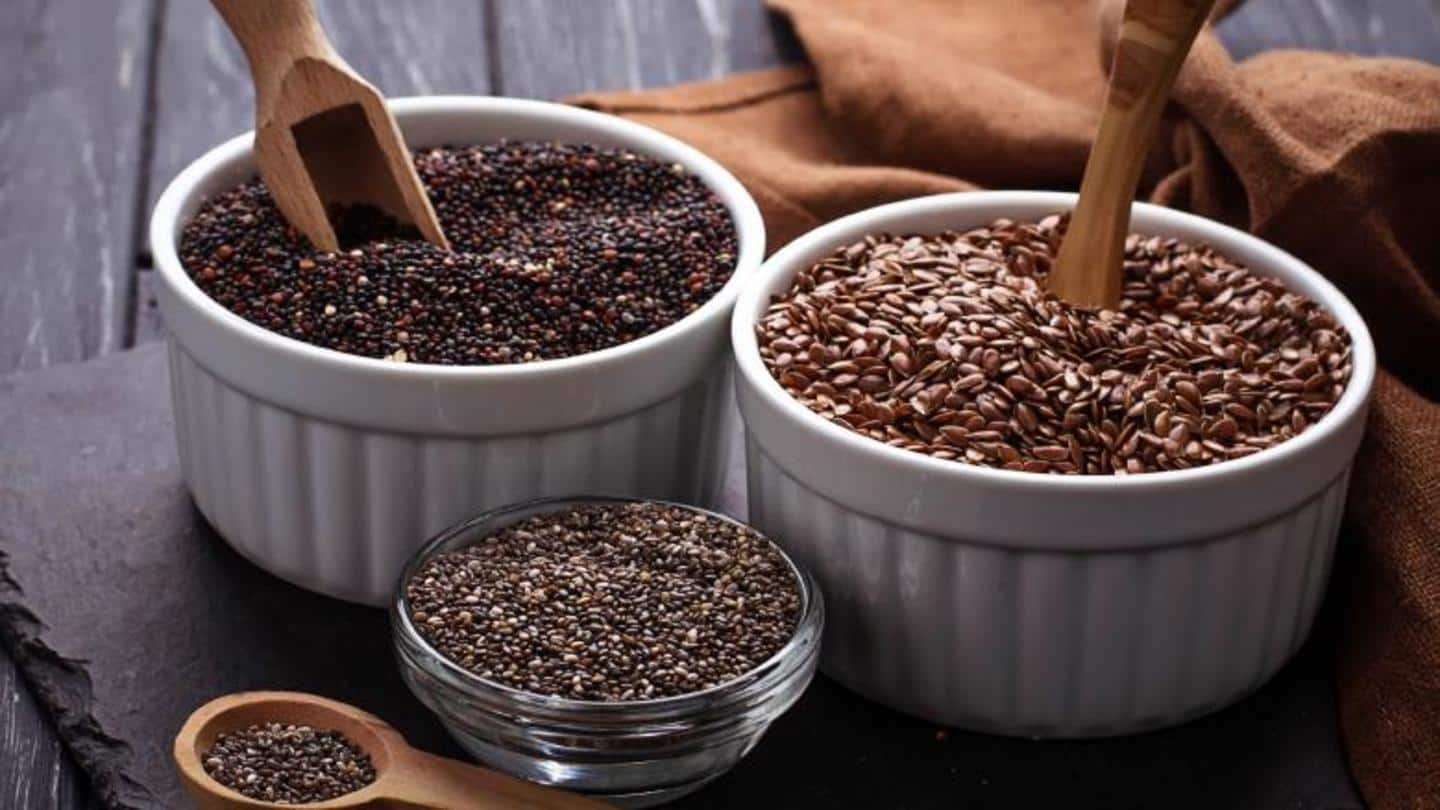
#HealthBytes: You can get omega-3 from these five plant-based sources
What's the story
Omega-3 fatty acids are of three types: Eicosapentaenoic Acid (EPA), Docosahexaenoic acid (DHA), and Alpha-linolenic Acids (ALA).
Marine animals are a rich source of EPA and DHA, while ALA is found in several plant-based foods.
Though EPA and DHA are better options in comparison to the ALA omega-3 fatty acids, the following foods are the best picks, if you cannot have animal-based foods.
Chia Seeds
Chia seeds contain ALA and omega-6 fatty acids
Chia seeds have a high content of ALA and omega-6 fatty acids.
With the rising popularity, these seeds are now a commonly found ingredient in cereals, bread, puddings, and bars.
Add chia seeds as a topping on yogurt, mix it into your bread dough, or toss a handful into muffin or pancake batter.
They are also an excellent substitute for egg in vegan cooking.
Flaxseeds
Flaxseeds are the richest plant-based source of omega-3
Flaxseeds are the richest plant-based whole-food source of omega-3 fatty acid ALA.
Studies prove that the ALA present in these seeds promotes good heart health and reduces tumor growth.
Flaxseed oil is a vegetarian alternative to fish oil. However, this oil does not have as much omega-3 content as fish oils.
Have a handful of flaxseeds with water every day for overall health.
Walnuts
Walnut skin is loaded with phenol antioxidants, vitamin E
Walnuts are a valuable source of ALA omega-3 fatty acids, and contain high amounts of vitamin E.
The omega-3 fats present in these nuts help in reducing oxidative stress in the brain.
Walnut skin is loaded with phenol antioxidants and has important health benefits.
You can simply munch on walnuts but if the taste is too bland, make a delicious walnut bread at home.
Algal Oil
Algal oil supplements healthy for those who don't eat fish
Algal oil is made from certain marine algae and like fish oil, it is rich in omega-3 fatty acids.
The oil contains omega-3 and omega-9 fatty acids.
It helps in reducing inflammation and helps with brain function.
Algal oil supplements are generally considered safe and are a healthy substitute for those who do not eat fish.
Consult with your doctor for dosage instructions.
Brussels Sprouts
100 cal-worth Brussels sprouts provide about 480mgs omega-3 fatty acids
Teeny-tiny brussels sprouts are loaded with fibers, vitamins, antioxidants, and a whole lot of ALA omega 3 fatty acids.
In fact, 100 calories worth of brussels sprouts provides about 480 milligrams of omega-3 fatty acid, making it a healthy vegetable alternative for ALA.
Make an easy stir fry to gobble down its benefits or go for fancier recipes that you can find online.